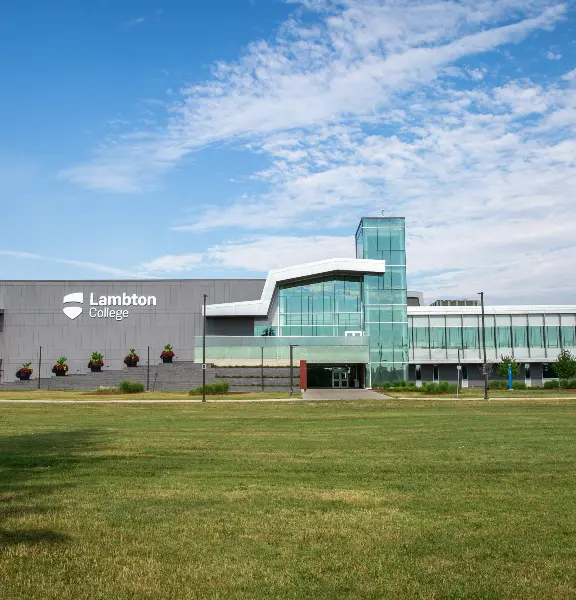SARNIA, October 14, 2022 – Lambton College’s Research & Innovation department has built a strong research portfolio consisting of six research centres and three research groups, all of which support the Circular Economy. Through new funding, Lambton College will increase this portfolio through the development of the Lambton Circular Economy Innovation Platform (LCEIP) to provide positive impact on Canada’s environment and economy.
The Circular Economy is a model of production and consumption, which involves sharing, leasing, reusing, repairing, refurbishing, and recycling existing materials and products. Circular Economy is seen as a non-partisan model for achieving economic, social, and environmental prosperity over the long-term – alignment exists around the opportunities with broad awareness of the benefits.
Today, Lambton College was named as a recipient of the Mobilize grant by the Natural Sciences and Engineering Research Council (NSERC) in the amount of $3.25M over five years. The Mobilize grant provides funding to support colleges to address applied research priorities. Lambton College received one of the largest funding amounts from the program.
“Lambton is thrilled to have been named as a successful recipient of the Mobilize grant to develop the Lambton Circular Economy Innovation Platform (LCEIP) in support of the Circular Economy and Circular Community,” said Dr. Mehdi Sheikhzadeh, Vice President, Research & Innovation, Lambton College. “The LCEIP will provide essential means to enhance the existing research centres and groups by increasing access to resources and capacity to address applied research priorities in industry, health, and not-for-profit community-based organizations focused on the Circular Economy and Circular Community.”
The funding will help Lambton develop new areas of research that will include battery manufacturing and recycling, and food waste recycling. The grant will allow for the expansion of existing partnerships and development of new relationships with colleges, universities, innovation parks and other government agencies to initiate more partnerships with industry and not-for-profits and offer more comprehensive innovation services.
Over the course of the five-year funding, LCEIP will develop 250 applied research projects and an additional 125 longer projects, attracting $500K/year partnership support and $3M in infrastructure grants. The platform will also provide 155 experiential research education opportunities for students from a range of programs including technology, IT, health, and business.
The LCEIP will become a key program to provide long-term applied research initiatives focused on the Circular Economy which is the priority of the College’s partners in natural sciences, engineering, social sciences, humanities, and health sciences.

